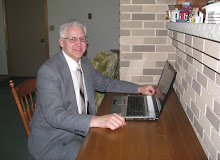Anyone who has seen the Disney classic Davy Crockett: King of the Wild Frontier knows that he was a Congressman from Tennessee. After serving a term in Congress Davy Crockett met a man by the name of Horatio Bunce. The story of this meeting, as portrayed in the book, The Life of Colonel David Crockett, by Edward S. Ellis, illustrates two important points in the battle to regain Constitutional law in the American republic.
Davy Crockett rode up to a farmer plowing his field to ask for his vote in the upcoming election. As he began to introduce himself the farmer stopped him, “Yes, I know you: you are Colonel Crockett. I have seen you once before, and voted for you the last time you were elected. I suppose you are out electioneering now, but you had better not waste your time or mine. I shall not vote for you again.”
Crockett was taken aback, as any politician would be, and he asked Mr. Bunce to explain the problem. Horatio explained, “...you gave a vote last winter which shows that either you have not capacity to understand the Constitution, or that you are wanting in the honesty and firmness to be guided by it...the Constitution, to be worth anything, must be held sacred, and rigidly observed in all its provisions. The man who wields power and misinterprets it is the more dangerous the more honest he is.”
Davy Crockett agreed with Horatio Bunce in all he said, but protested that he must be mistaken, “...for I do not remember that I gave any vote last winter upon any Constitutional question.” Mr. Bunce then reminded Davy Crockett that he had voted to appropriate relief from the treasury to victims of a fire in Georgetown. Crockett admitted that he did, and again protested that he thought that would be the last vote that would cause him any trouble from his constituents.
To this Horatio Bunce replied, “Well, Colonel, where do you find in the Constitution any authority to give away public money in charity?” Once again the backwoods farmer convinced the Congressman of his error, but again Davey Crockett protested, claiming that the amount was so small and the treasury so full that, Mr. Bunce, had he been there, “would have done just as I did.”
The reply of Horatio Bunce to this is quite enlightening:
“It is not the amount, Colonel, that I complain of; it is the principle. In the first place, the government ought to have in the treasury no more than enough for its legitimate purposes. But that has nothing to do with the question. The power of collecting and disbursing money at pleasure is the most dangerous power that can be intrusted to man...So you see, that while you are contributing to relieve one, you are drawing it from thousands who are worse off than he. If you had the right to give anything, the amount was simply a matter of discretion with you, and you had as much right to give $20,000,000 as $20,000...You will easily perceive what a wide door this would open for fraud and corruption and favoritism, on the one hand, and for robbing the people on the other. No, colonel, Congress has no right to give charity. Individual members may give as much of their own money as they please, but they have no right to touch a dollar of the public money for that purpose...The people have delegated to Congress, by the Constitution, the power to do certain things. To do these, it is authorized to collect and pay moneys, and for nothing else. Everything beyond this is usurpation, and a violation of the Constitution.”
Davy Crockett changed his position, and asked forgiveness of Horatio Bunce. This story reveals how far the American government has strayed from the Constitution, exposing the immorality of stealing the people's money under the guise of charity. But more importantly, this story illustrates the answer to America's Constitutional woes – The backwoods farmer understood his Constitution and was willing to defend it with the power of his tongue and the power of his vote.
Saturday, February 6, 2010
A Meeting With Horatio Bunce Converts Davy Crockett to a Constitutional Congressman
Labels:
charity,
congress,
Constitution,
Davy Crockett,
Horatio Bunce,
unconstitutional
Subscribe to:
Post Comments (Atom)

No comments:
Post a Comment